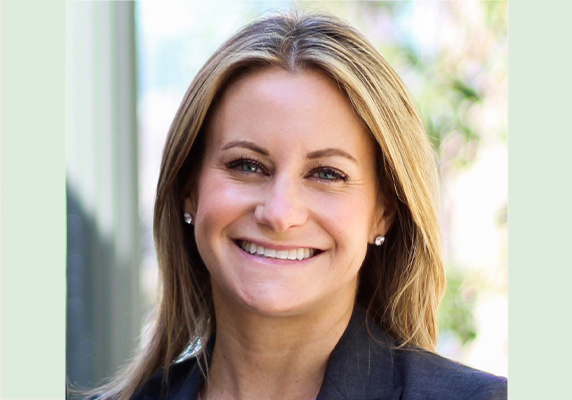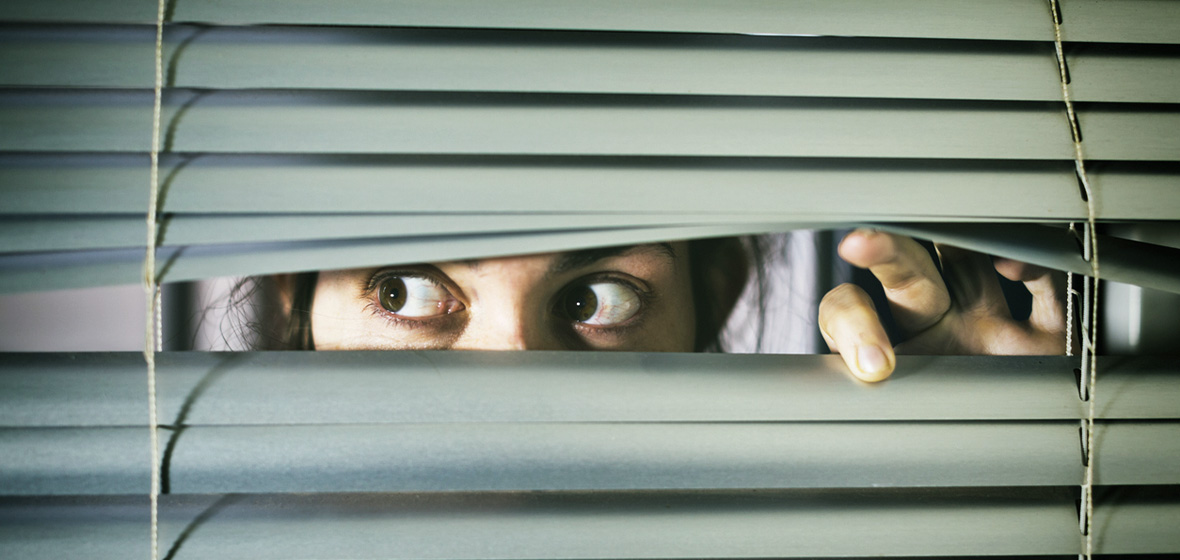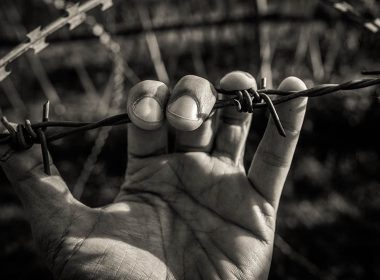US attorney Gillian Wade is acting in a class-action lawsuit against Apple to address the ease with which the AirTag tracking device enables stalking.
Gillian L Wade is the Los Angeles-based Partner at Milstein, Jackson, Fairchild & Wade, where she leads the consumer fraud and class action litigation department.
As LSJ previously reported, in December 2022 Wade was one of the attorneys representing two women who filed a class-action lawsuit (Hughes et al v. Apple, Inc) in California claiming the AirTag made it easier for them to be stalked and harassed by abusers. The suit claims AirTags have been “the weapon of choice for stalkers and abusers” and charges the tech company with negligence, intrusion-upon-seclusion and product liability.
Since joining the firm in 2005, Wade has been involved in the resolution of more than 75 consumer fraud class actions. Her work has focused on representing plaintiffs in complex litigation and consumer class actions stemming from a wide range of unlawful activities, including violations of California’s unfair competition law and false advertising law, antitrust violations, the Consumer Legal Remedies Act, data breach and privacy violations, financial abuse of the elderly and disabled statutes, employment violations, warranty and product liability laws, and civil rights abuses.

Wade has written on class action litigation, and was the Plaintiffs’ Co-chair for the 2019 Bridgeport Consumer Class Action conference. Accordingly, she is well suited to be facing down the technology behemoth Apple (valued at $US3 trillion).
Among the 12 claims Apple faces, the plaintiffs allege the company breached their privacy by geolocating them, violating state privacy laws, and using fraudulent marketing to deceive the public that AirTags were safe. The lawsuit states that “each Plaintiff continues to be at risk of unwanted and unlawful tracking via an AirTag device.” Apple is accused of unjust enrichment, negligence, negligence per se, intrusion upon seclusion and violations of New York General Business Law and California’s Constitutional Right to Privacy.
Wade tells LSJ that since she is involved in active litigation, there are certain details she can’t discuss. But she is able to provide insight into the intention and desired outcome of legal action against Apple.
Wade is one of three attorneys working together on this case. The other two are Edwin J. Kilpela, Jr. from Lynch Carpenter and David Slade from WH Law, the other attorneys representing plaintiffs Lauren Hughes of Texas and Jane Doe of New York.
“The stories, and the volume of people that we’re now aware of, is surprising,” admits Wade. “And how dangerous this really is, which you realise when you start talking with people and hear what they go through.”
‘How dangerous this really is … you realise when you start talking with people and hear what they go through.’
Once the complaint was initially filed in December 2022, the response was so strong that Wade, Slade and Kilpela “could barely keep up with the volume of victims who came forward”. Wade says that calls and emails still arrive throughout the week, and they have heard from hundreds of victims and retained a number of those who made contact.
She admits, however: “A lot of people are scared to come forward. They don’t want to have their name out there in case their stalker learns they’d talked to us.”
No ‘typical’ victim
Wade says there is no ‘typical’ victim.
“Something that really surprised me is that no one is safe from this. There’s no discriminating between a student and a young woman being stalked by her ex-boyfriend, or an executive who’s super-powerful at a big company whose ex-husband is doing this to her. Another woman is a famous model. We spoke to a handful of men who have been stalked, and children who have been stalked by custodial and non-custodial parents, too.”
The lawsuit claims that individuals have few, if any, meaningful remedies when they are tracked:
“While Apple has built safeguards into the AirTag product, they are woefully inadequate, and do little, if anything, to promptly warn individuals if they are being tracked. Moreover, there is a gross imbalance between the protections available to iOS/Apple users, versus those available to individuals with Android devices—rendering Android users nearly defenseless to tracking/stalking using an AirTag.” (E.41)
There may be a motion to dismiss, but if the case is not dismissed, the defendant – Apple – is required to generally admit or deny each of the allegations contained in each paragraph of the complaint. In an answer, defendants are also allowed to assert affirmative defences, and discovery may then be commenced.
Wade says the next procedural step is to move for class certification, “which is a big ordeal”. At present, the class is “anyone who has been tracked by an AirTag without their consent,” Wade says.
“There are a few classes and subclasses in the initial complaint, but those are subject to change. The court could say they don’t like a particular class because it’s not sufficiently defined, but they will certify another class, or they’ll certify a class for certain purposes and not others.”
She describes the situation as “malleable”, as there is an added possibility of several individual cases going forward in addition to the class action.
The situation is ‘malleable’ as there is an added possibility of several individual cases going forward in addition to the class action.
Wade clarifies, “The point of this lawsuit, first and foremost, is to try to force Apple to change their conduct and make their product safer.”
She adds, “We’re seeking injunctive relief, which would be in the form of making their products safer. In addition, we would be seeking statutory damages under the California privacy claims. It’s up to $500 per violation, or something like that. If individual claims proceed at the same time as the class action claims, then each individual would be entitled to damages for their emotional distress and other kinds of damages. Some people have had to move from their homes, hire security, or get a new car.”
To clarify, she says “California is a comparative fault state, and Apple is located in California.”
Setting a standard
State courts allow injured parties to collect damages even if they are 99 per cent at fault for an accident. California does not cap the amount of fault at 50 per cent, as is the case in modified comparative negligence states.
Wade continues, “What that means is that if Apple is two per cent responsible, because obviously the stalkers are using the product for an improper use, but to the extent that Apple has any contribution to that, then we call that being jointly and severally liable and that means they have to pay all of [the compensation].”
This case aims to set a standard for technology companies in the broader world about what their responsibilities are to consumers as far as the creation of technology that can very easily be misused without adequate safety precautions or solutions.
Wade enthuses, “There’s a huge segment of the world population that uses Androids, and I hope we can bring some parties like Google and other big players into this space to collaborate and make technology safer. AirTags are the most prevalent and popular [product] but they’re not the only technology. There’s Tile, and Samsung has a similar product. Apple is the biggest player in the field, though.”
Wade concedes there is no specific precedent for this case, since the technology is relatively new. She refers to a new statute within CIPA, the California Invasion of Privacy Act: California Penal Code Section 637.7 (use of electronic tracking devices). This prohibits individuals from using electronic tracking devices to determine the location or movement of a person (an important exception allows registered owners, lessors, or lessees of vehicles to use electronic tracking devices to track their own vehicles).
Interestingly, Wade sees this class action as somewhat aligned with the recent cases against gun manufacturers in mass shootings.
“We’ve considered that there has been litigation in the United States against gun manufacturers for their role in the deaths of children and in mass shootings. Just because you’re not the shooter doesn’t mean that you’re not responsible,” she says.
‘Just because you’re not the shooter doesn’t mean that you’re not responsible.’
Wade laughs a little ruefully when asked if she has planned for all outcomes, including a loss.
“In every case, we don’t plan to lose but you know it’s always a risk and particularly when it’s something a little more novel and it’s based on a statute. Our whole case could be dismissed on a motion to dismiss at the outset and be dead on arrival; you never know. Another possibility in any class action is that our class might not get certified. If it doesn’t, the case is over.”
I know they can do more
She insists, “We won’t ever give up on wanting Apple to change things. We won’t ever give up on that, even if we lose money. Even if we can’t get a damages class certified, we’d fight for injunctive relief no matter what. We also have individual clients with claims. If we don’t get certified, we’d proceed on an individual basis for as many clients as we have.”
Wade says the negative public exposure Apple has been subjected to, and the media coverage, have had little impact on the marketing and selling of AirTags to date, but it has garnered interest nonetheless.
“In most cases, no one really cares about civil law cases that much, but this is a really human issue,” she muses.
So far, there has been one hearing, an initial status conference on 28 April in which parties agreed to a stay of the case until September to try to resolve it. To date, at August 2023, it has not resolved.
“At the latest, there will be another status conference in September and further news then,” Wade says.
“It’s an uphill battle dealing with a behemoth like Apple and I know they can do something, they can do more. I know they can make their product safer. If they can’t then it shouldn’t be out there,” she says.




